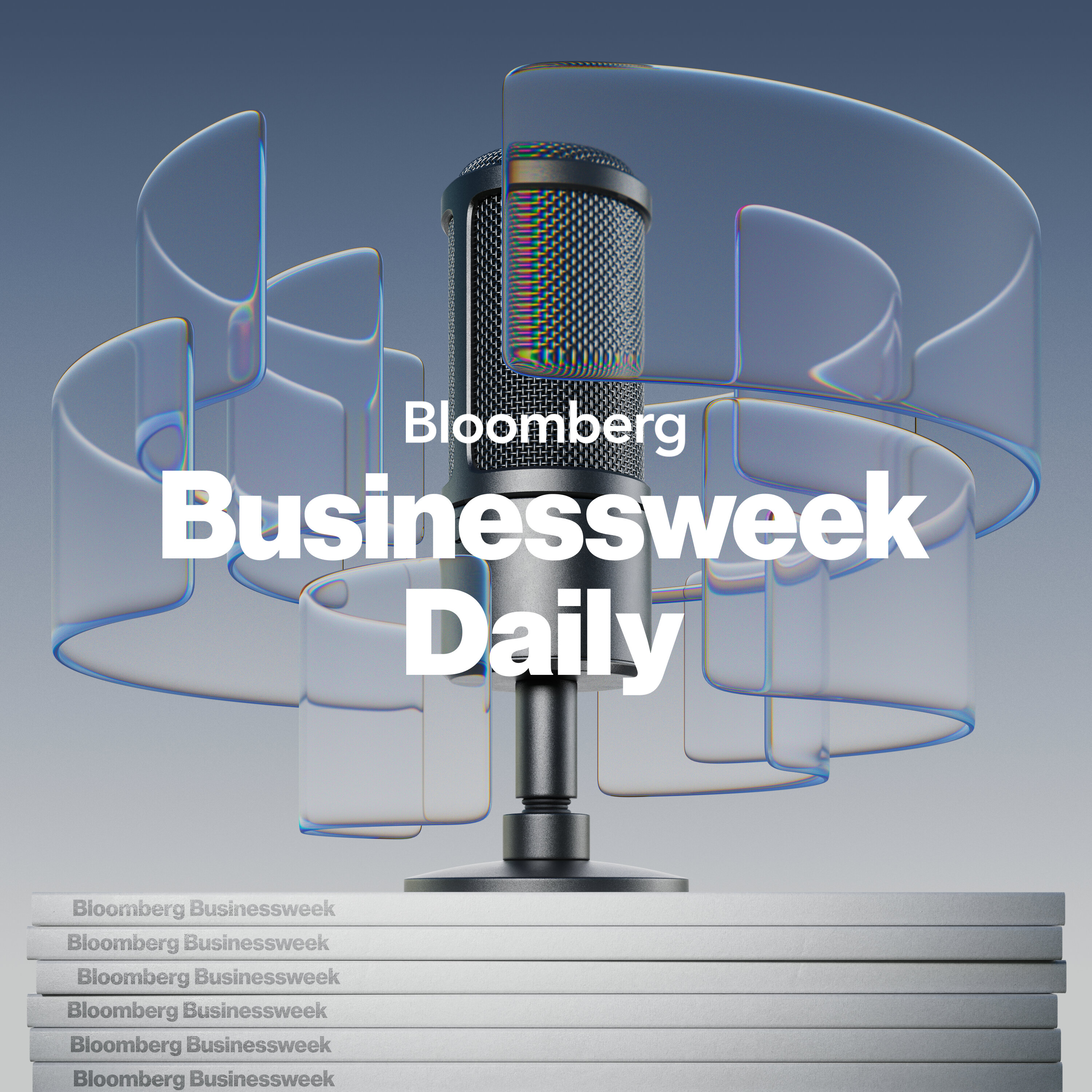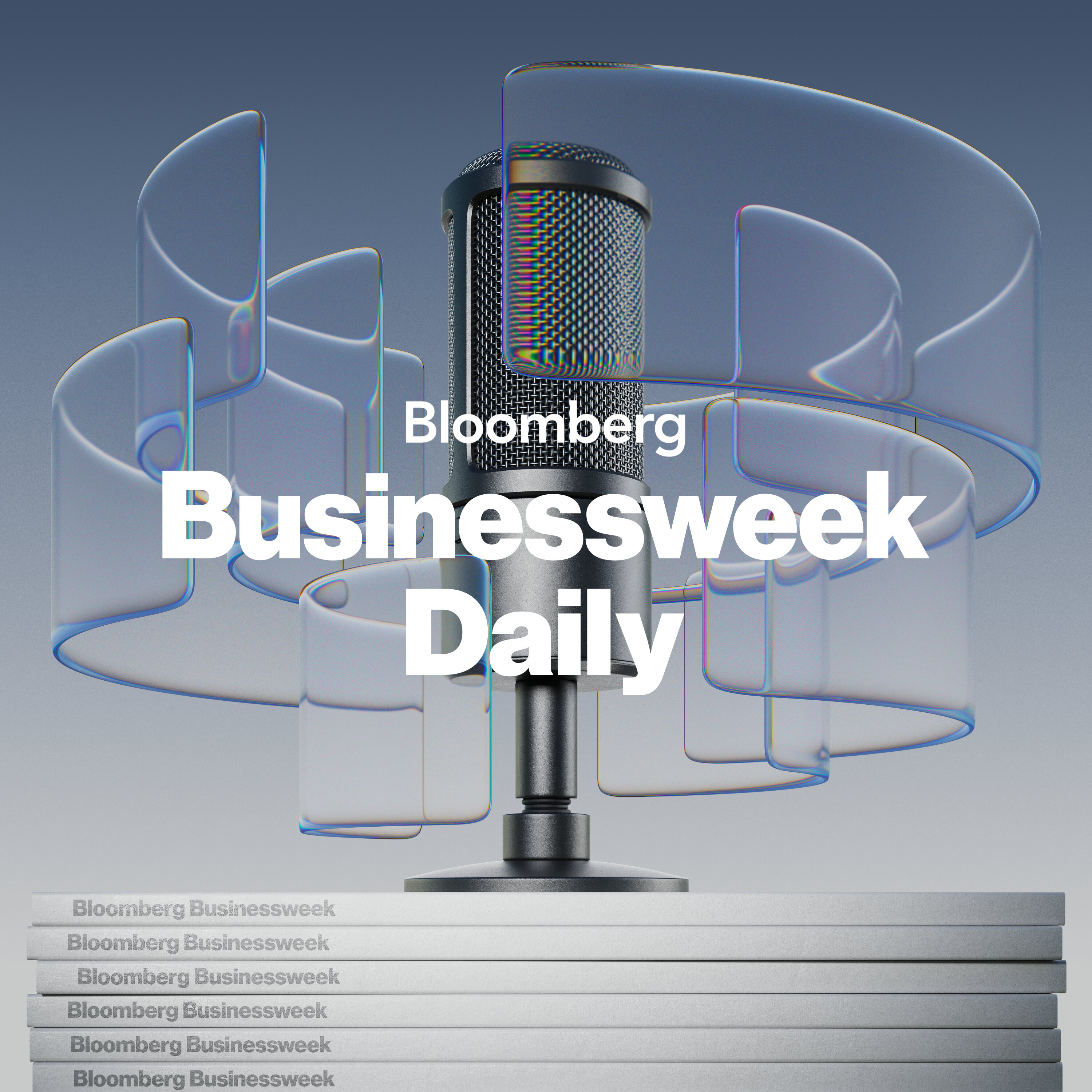
ICYMI: YouTube Is Coming for the Sitcom

Bloomberg Businessweek
Deep Dive
- YouTube's popularity and time spent watching it.
- Advertisers shifting towards YouTube.
- Nielsen data showing YouTube's dominance in TV streaming.
Shownotes Transcript
This is an iHeart Podcast.
In business, plans change fast and your brand has to keep up. That's why teams rely on 4imprint for promotional products that deliver. 4imprint offers thousands of options including apparel, drinkware, tech, and trade show gear. Many available with 24-hour turnaround, helping you move quickly and never compromising quality. You'll enjoy free samples, expert support, and every order back by their 360-degree guarantee. So it arrives right and on time. Explore more at 4imprint.com. 4imprint. 4 support.
Bloomberg Audio Studios. Podcasts, radio, news. You're listening to Bloomberg Business Week with Carol Masser and Tim Stenevek.
Hey, we want to get to a story. Do you watch YouTube a lot? I actually do. I feel like it's so easy to just continue to go down rabbit holes of all the things that you watch. One thing, another video will come up and it just, I probably spend too much time. We have dedicated channels that we definitely go to. Um, we sail and we watch some of the sailors that are going around the globe. So we like, we'll like tune in every week or two weeks when they've got a new episode. Um,
Got to keep in mind, YouTube has spent the past few years trying to make itself the centerpiece of the living room. For two decades, it has tried to convince advertisers that it's the future of entertainment. It has had some problems making that case. So writes our own Lucas Shaw. We want to head to our L.A. Bureau for Bloomberg News and Bloomberg News Managing Editor, Media and Entertainment.
head, Lucas Shaw. He's really the ringleader, I should say, behind our Bloomberg Screen Time coverage and vertical as well. Hey, Lucas, good to check in with you. Great story. YouTube, it feels like it's, I don't know, I feel like everybody's talking about it. It's coming into its own. What's going on? And is kind of everybody talking about it with good reason?
Well, I'd say everyone in Hollywood is paying more attention to it than they used to be. You know, it's funny to talk about YouTube as anything new, right? It's been around for 20 years as of this year. It's been widely popular for at least a decade, if not longer. You know, it's the most popular music service in most of the world. It's become a very popular platform for podcasting. You know, it's where people essentially watch late night. It's the new home of all time.
I use it for yoga. But I think that what's really happened over the last couple of years is twofold. One is it's just as traditional entertainment has gotten more challenging and as the TV business has shrunk, advertisers have looked to YouTube as the future and started to spend more and more money there. Creators who have been there for a long time have started to build businesses and been able to raise real capital.
And then I think data also does play a real role here where Nielsen puts out these monthly reports on how much time people are spending watching a given streaming service on television. And YouTube has gone from being already number two behind Netflix to now being the unequivocal number one. People spend more time watching YouTube on a television than everything Disney owns. That's streaming, that's TV networks.
And I think that has really reinforced for people in entertainment, like, holy crap, YouTube is really big and we need to look at this again. - What do we know as far as behind Alphabet's efforts when it comes to streaming? When you think about other rivals, say like Amazon with Amazon Prime and the streaming services that they have, and you're mentioning obviously Netflix too here.
Well, look, YouTube is just leaps and bounds bigger than what any of the other tech companies have, right? Apple and Amazon have their own streaming services. Apple's is very niche. Amazon's is pretty big, but still much smaller. Both of them view themselves, I think, primarily as...
homes and retailers for other people's wares, right? Like Amazon is a core retailer. It wants to sell everyone else's streaming service.
Apple would want it to make its TV app the place where you could come and find everything. The challenge that a lot of them ran into as a company like Netflix was like, I don't want to collaborate with you on this. I'm trying to become the place that everybody goes. You know, YouTube has aspects of it being this destination, right? They sell the live TV service, YouTube TV. You can pay for paid streaming services and stream them within YouTube.
There are a lot of other things you can do besides watch core YouTube, but it has the biggest advantage of all, which is it has just YouTube. And so many people already come for that, that it becomes a natural hub to direct them to all these other things. So I'm going to ask you, Lucas, our Sebastian Escobar is just saying YouTube premium like kind of changed his life, changed his mind. He said it's like $19 a month, bit pricey, but no ads.
I mean, is that where they're making their money or do they need to be providing content that advertisers want to advertise with?
Well, look, YouTube still makes the majority of its money from advertising. You know, I think last year it was, I'm going to say it's about $35 billion, but don't hold me to that. Maybe it was a little lower. Maybe it was closer to $30. Subscription-wise, the outside estimates now say the YouTube business is probably $15 to $20 billion. That's also massive. It's not as big as advertising. That's a mix of YouTube TV, the YouTube premium. I think YouTube premium is huge.
Great for certain people and the music service has also is a big lore, you know YouTube has become one of the bigger paid music services on top of being free but it's still look it's
That's like the nice growth area and something they're putting a lot of effort into. But YouTube is a division of Alphabet. Alphabet makes most of its money from advertising. I don't think that's going to change anytime soon, but they want to have a little bit of everything. And, you know, there is the quality of programming that you see on YouTube, I think, is getting better each year. And that's one of the things that I tried to get at.
there's always been this perception of YouTube as sort of a home for lower quality smut. And there's some of that still, there's a lot of that still there, right? It's sort of, there's an inexhaustible amount of video that you can watch on YouTube. But the stuff at the top end is starting to rival what you could see on TV. - How are Hollywood executives trying to jump in on this?
Well, so there's a long and checkered history of Hollywood and YouTube in that about 10 years ago, maybe 12 years ago, there was sort of an initial rush of investment and Hollywood companies invested in all these companies called multi-channel networks that were loose confederations of channels where the company itself didn't really own anything. They did a lot of business like ad sales or distribution on behalf of the channels. It turns out those were not very good businesses.
But Disney spent a bunch of money on one. DreamWorks Animation bought one. Warner Brothers bought one or two. Now, I think they're looking at that again, but trying to be smarter about how they go about it. So that can be either in...
kind of taking just licensing existing shows, right? So Netflix has Cocoa Melon, they have Miss Rachel, they have the Sidemen, Amazon has a big show with Mr. Beast, and that's essentially paying these people to bring what's already popular over to them. Or they may invest in some of these companies or try to strike deals. And those haven't happened yet, but I think they probably will at some point. You'll see an effort to kind of buy someone who has brands or properties that might work.
- Yeah, it's just kind of fascinating. I guess, you know, does it, bottom line, Lucas, I mean, going forward, do they want to have, I'm assuming the majority of their content, you know, produced well, or do they like this idea that there's like kind of anybody can create a YouTube channel and put some content up there? - They in that case is YouTube?
Well, I'm thinking about, yeah, like I guess YouTube creating, I guess their own content. It sounds like they want to kind of up the quality of it, but I just feel like there's just so many other people who do it too. And some of it's really good. Some of it's not.
I don't think YouTube wants to finance a lot of its own programming. That could change, but they have dabbled in that over the years and it hasn't gone very well. And I think they much prefer being this neutral distributor and being a platform where people can upload anything. And they might invest or put money behind certain areas where they want to push people, but they have...
Alphabet, Google, YouTube, any part of that colossus has never shown a ton of interest in being a proper studio in the same way that Amazon and Apple are now. Now, that could change. Someone made a good point to me the other day, which is like, if you're them and you want to be ahead in AI, would you want to buy a big studio and use that copyright to train your video model? Maybe. But to date, funding...
entertainment or kind of directly funding production has not been something that YouTube has liked a lot. All right. Well, it's such a great deep dive. And I just feel like we are increasingly when we're talking about like where everybody's watching, we are talking so much about YouTube. Lucas, thank you as always. Really appreciate it.
Of course, Bloomberg News Managing Editor, Media and Entertainment, Lucas Shaw. Check out his story. It's in the weekend edition, too, of Bloomberg Businessweek. And you can check it out and read a little bit more in terms of details. There's some great, I mean, I think Lucas touched on it, but according to Nielsen, an average of more than 7 million people in the U.S. are watching YouTube on a TV at any given time. More than watching Netflix and Amazon Prime video combined. Fastest growing audience, being viewers 65 and over.
I don't know. It's just kind of wild. We watch it a lot in our house. How can you free your team from time-consuming office tasks? Amazon Business empowers leaders to not only streamline purchasing, but better support their teams. Smart business buying tools enable buyers to find and purchase items fast so they can focus on strategy and growth. It's time to free up your teams and focus on your future. Learn more about the technology, insights, and support available at amazonbusiness.com.
Thank you.
Whatever challenge comes next, let Microsoft help you keep pushing forward. For more details, visit Microsoft.com slash challengers. This is an iHeart Podcast.